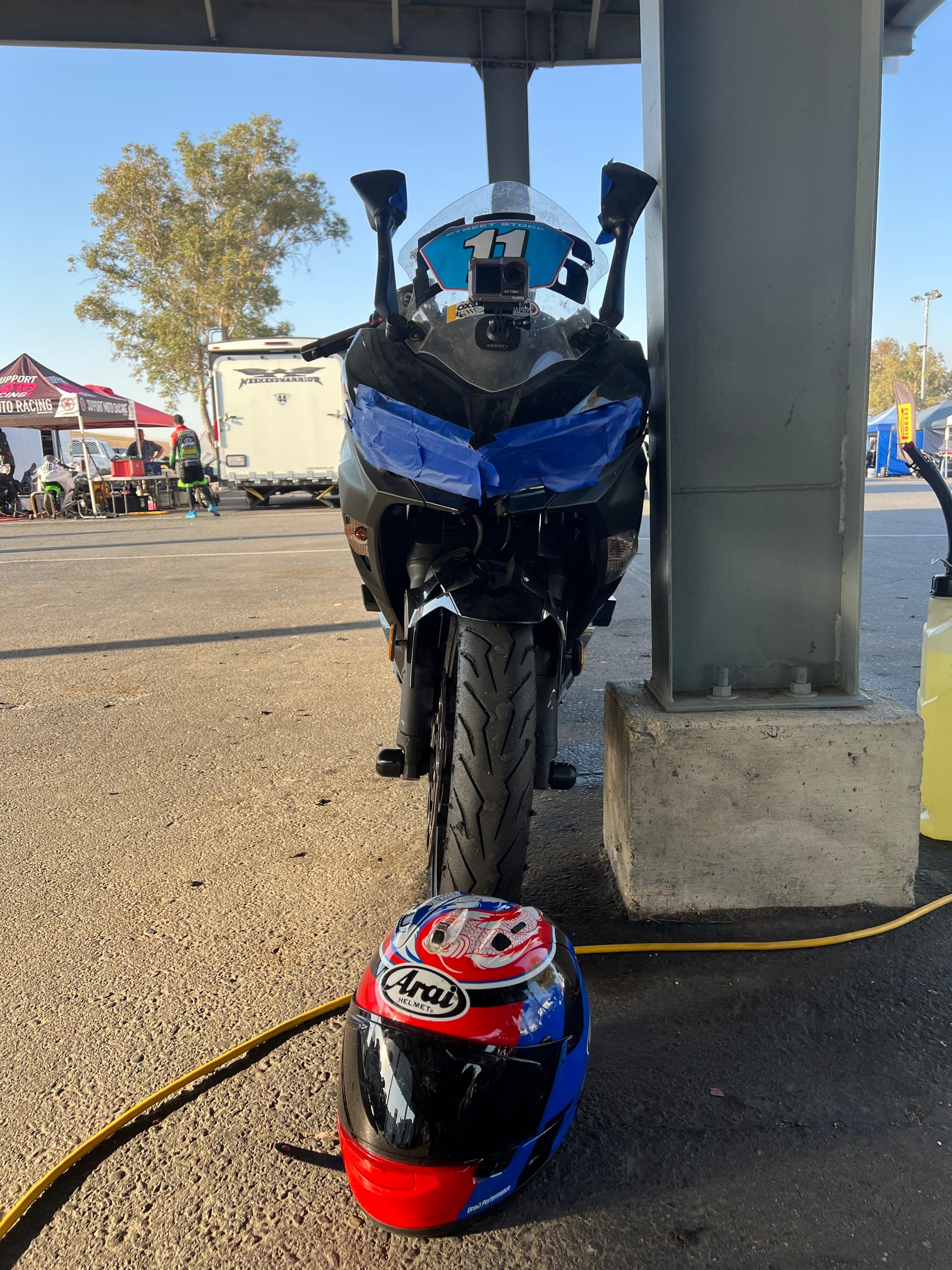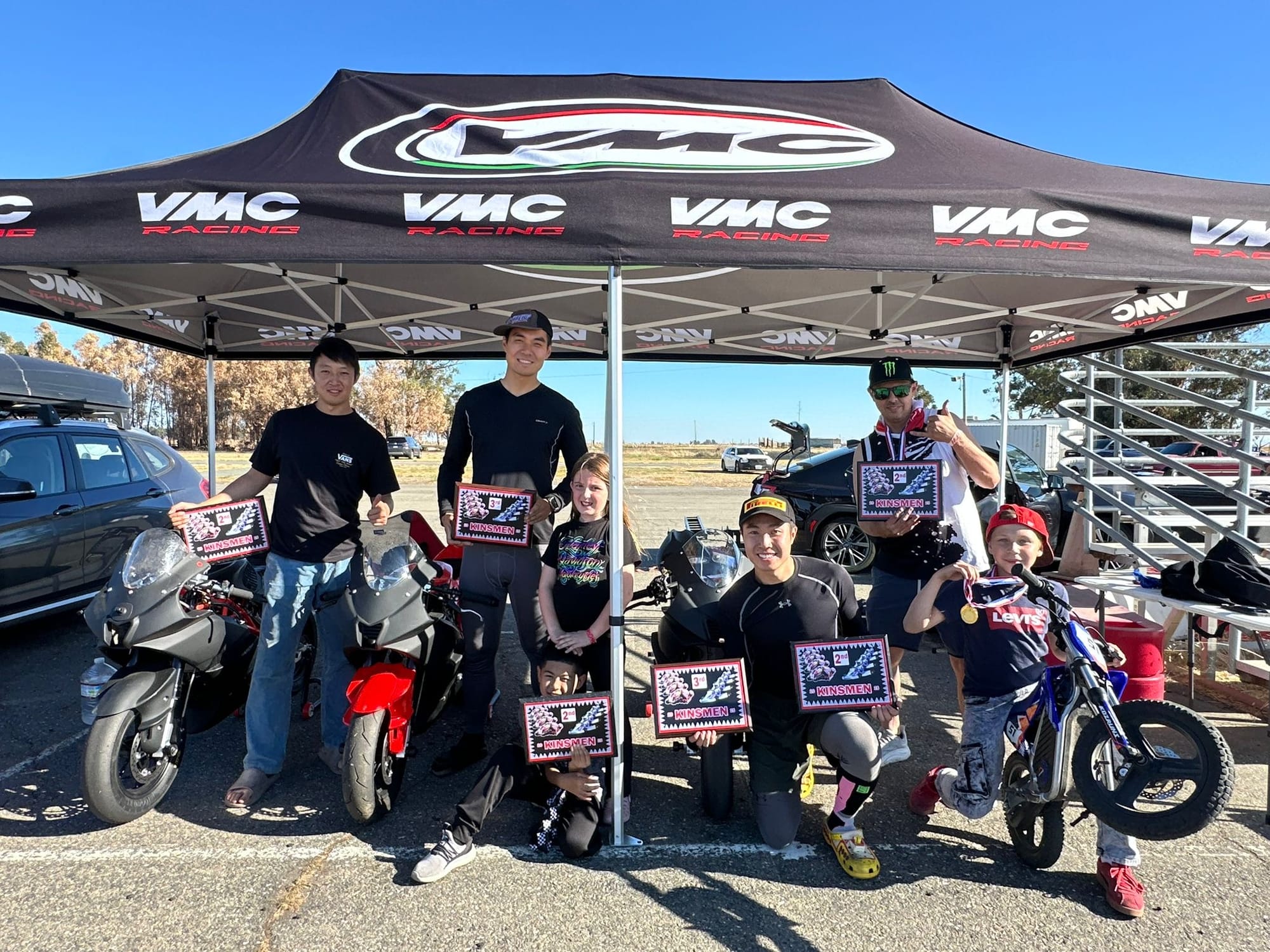Why I'm Pursuing Amateur Motorcycle Racing
To excel at something requires focus, sacrifice, and dedication. To be truly good at something requires dedicating almost all of your free time to it—a constant obsession with how to get better. And, as is often the case today, especially in motorsports, it requires backing it all up with the right level of funding.
Most riders I know are happy with weekend canyon rides and some garage wrenching. Far fewer step up to track days; in Northern California, that’s only a few thousand riders by my rough count. Even smaller, our local race organization, the American Federation of Motorcyclists (AFM), probably has a few hundred riders in a given season.
With racing, the risk goes up an order of magnitude. Street riding and track riding are both relatively safe activities when done with the right level of safety gear and skill. I often encourage my friends to partake in a track day to improve their riding abilities. But racing is different, and actually risky. At track days, you hear ‘pass for the other rider’s comfort.’ In racing, the guidance shifts to situational awareness: don’t target-fixate on a downed rider; pick your line and stay predictable.
To become a racer at the amateur level also demands a certain level of pace. Depending on the talent level, it could take a few years of track riding before someone is comfortable enough to start racing. The logistics of visiting the track enough times to develop this skill are complicated. Not to mention the skill and organization required to maintain a track bike.
Over the last two weekends, I attended the New Racer School, hosted by FunTrackDays, a track day provider, and obtained my amateur racing license. I participated in two non-competitive "fun" races at Thunderhill – Street Stock and a 400+ Group. And I followed that up the next weekend with two races on mini-motos at Kinsmen Kart Club. I’m proud of the start, loved every minute, and I’m committing to a full season next year.


However, what happened at NRS or my first few races won't be the focus here. I want to discuss why I'm undertaking this project. For all its demands—an obsessive level of excellence in skill and detail, almost all of my free time, and a healthy chunk of my wallet —I've gotten so much that the decision to dive deeper is obvious. But it doesn't come for free. And I've seen enough people burn out or not get what they're looking for that I think building the proper framework and mindset for continuing to participate in this hobby is crucial from the outset.
The first is that sports in adulthood provide a great deal of meaning and purpose in life. I plan on having kids, but I haven't had them yet. Dedicating my life to my career has been quite detrimental to my well-being. I love my job and it's the most important source of meaning for my life so far. However, corporate America demands patience and a long-term mindset for progression for most of us. The projects I work on at Pinterest span multiple years. And without other sources of joy and meaning to get me through the lows, which have sometimes spanned long periods of time, I might not have the patience to do well.
The second is that motorcycle racing is motivating me to be in shape. I lost 40 pounds in the process of trying to become a better rider. And I've been working out consistently for the last two years. It's highly motivating to keep working out when you see immediate results from increased strength and mobility, as well as reduced body weight. And while there will be crashes and injuries, overall it's going to be a net positive for my health and well-being.
And lastly, and maybe most importantly, the social connections that I've made at the track have been deeply fulfilling and have filled a hole that's been in my life in the past few years from two events. One, the pandemic drove many friends back to the East Coast. And two, my experience with undiagnosed sleep apnea (post) was pretty traumatic. It led to some drastic personality changes from likely oxygen-deprived brain damage and made it hard to stay in touch and keep friendships. I've since made a full recovery after diagnosis and treatment, but it was a harsh discontinuity in my life, and even now, I feel like I'm still rebuilding. It's hard to make friends as an adult. But the people that you ride with regularly at the track, you also implicitly trust with your life. Tackling challenges and growing together has created a solid foundation for great friendships. Racing gave me a structured way to rebuild.
I've played other sports in my adult life. I've snowboarded for many years; I had a brief stint in kitesurfing. I used to cycle up Hawk Hill every weekend. Of those, I dove into snowboarding the most. But it lacked the same progression. Snowboarding plateaued for me: once I could ride most terrain, progression felt vague, and the terrain park payoff was slow. Cycling had community but started to feel like ‘winning at exercise.’ Racing offers clear benchmarks, lap by lap.

So I'm jumping in with both feet. I've found my next all consuming passion and going all in.